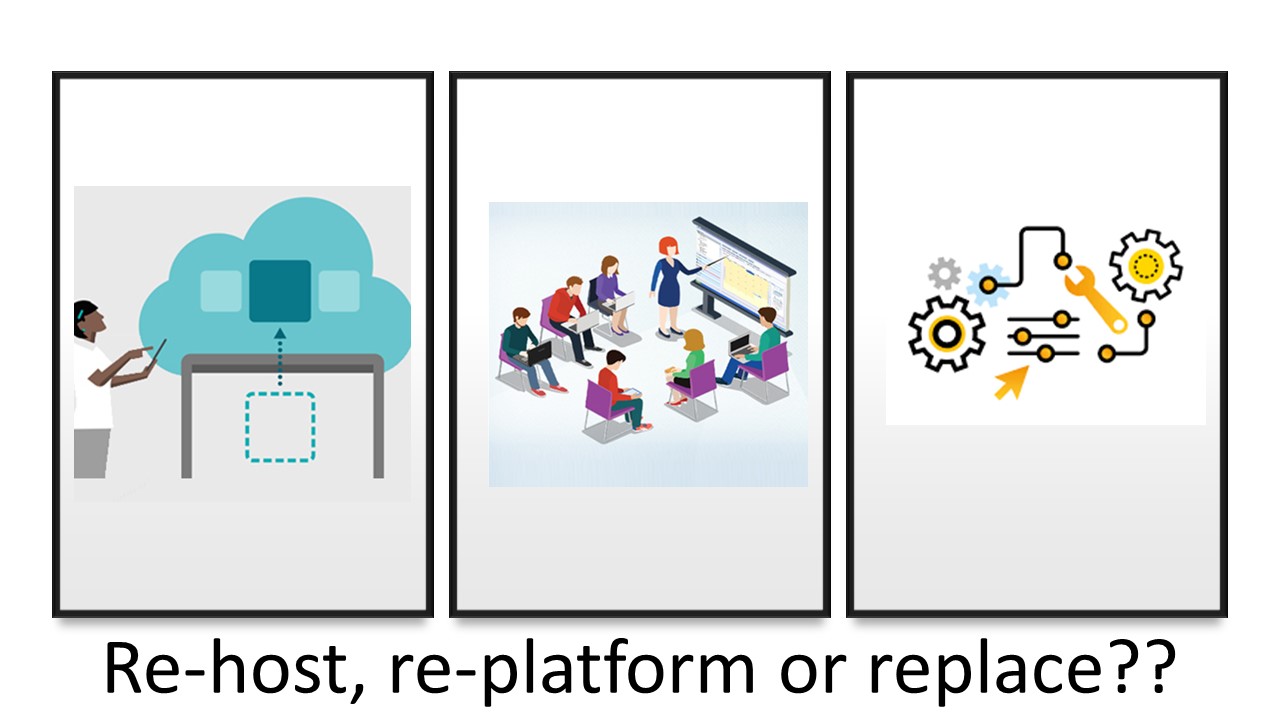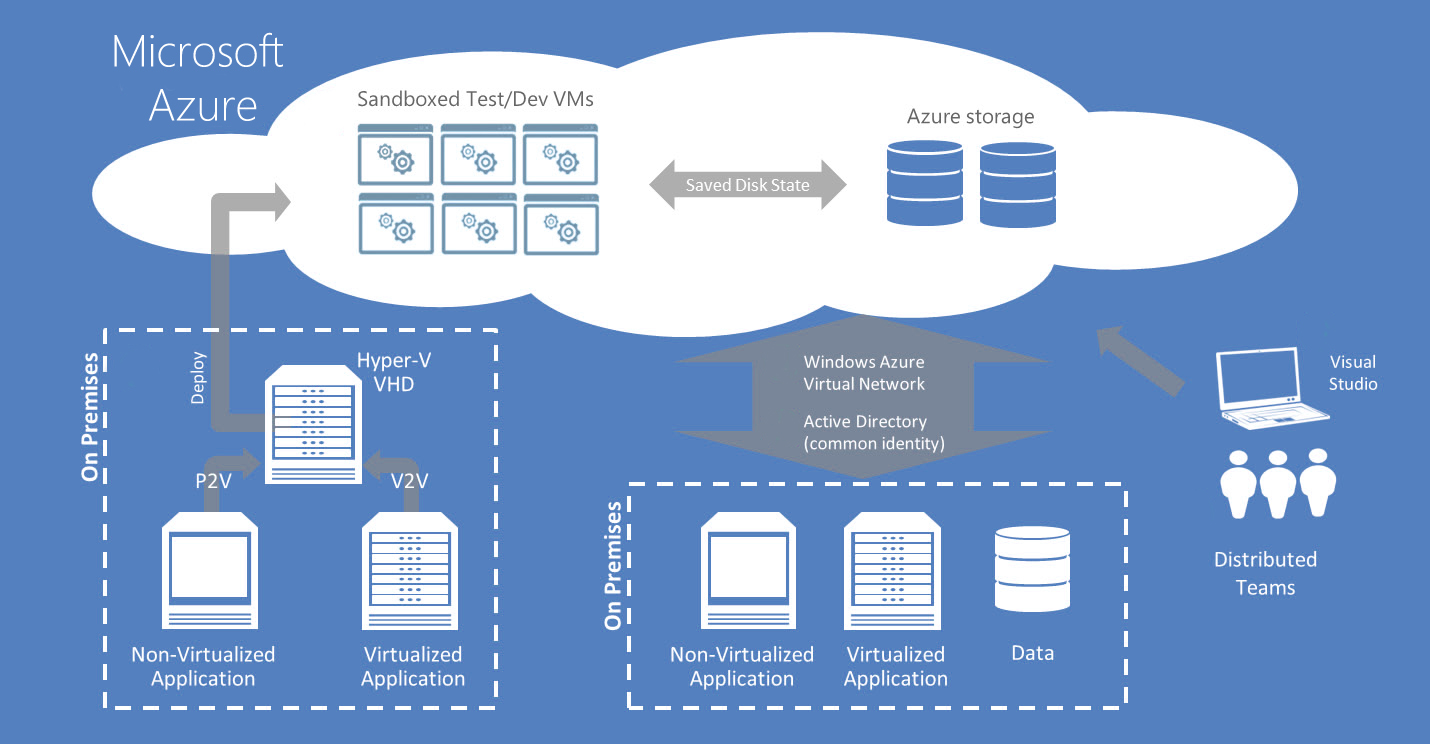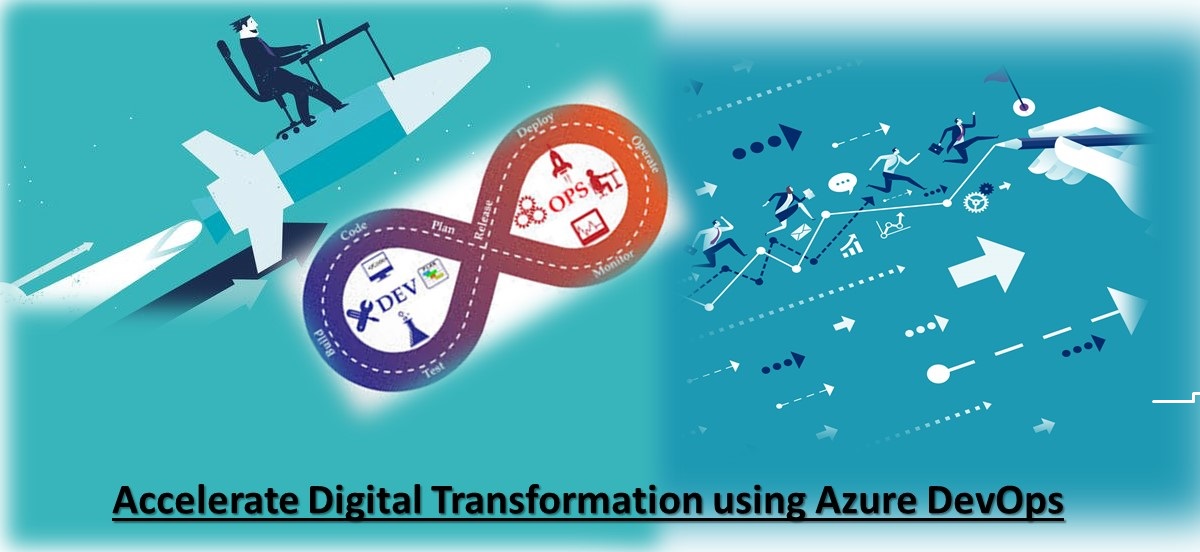Re-host, re-platform or replace: Which public cloud approach is right for your business?
Deciding factors differ from companies due to the nature and strategy of business. Business applications are part of every organization. While migrating from the server to independent cloud many considerations are required.
What are Private, Public, and Hybrid Cloud?
Private Cloud is dedicated for use of single organization. The data centre resources location can be on-premise or vendor’s site operated by resources of third party. Customization of Private cloud is possible as per the requirement.
Public Cloud is a third party service available over the internet. Some of the services are free and others charge for storage or CPU cycles used. Advantageous public clouds are the expense savers of hardware, maintenance, and fastest deployment. Multiple users can access same application at a given time without any geographical boundaries using the internet.
Hybrid Cloud a mix of private and public. It has attributes that provide great amount of flexibility to the organizations. It runs the business applications and servers to on public cloud. IT resources will be required to manage the applications on hybrid cloud.
Private, Public and Hybrid Cloud Comparison:
| Sr. No. | Comparatives | Private Cloud | Public Cloud | Hybrid Cloud |
| 1. | Environment | Physical, Dedicated and secure | Outsourced and Insecure | Outsourced but Security implemented |
| 2. | Suitable for | Government agencies and Industries | Software Development and Testing | Big Organizations and MNCs |
| 3. | Investments | Required | Free / Less | |
| 4. | Work Load | Average | High Scalability and Flexibility | High and Extendable |
| 5. | User | Specific Number | Specific Number | |
| 6. | IT Expertise | Required | Not Required | Required |
| 7. | Pricing | Expensive | Flexible | Expensive |
| 8. | Performance & Efficiency | Average | High | High |
| 9. | Security | High | Normally Average but High if implemented correctly | Better than Public cloud |
| 10. | Control on Infrastructure | High | Low | Partly |
| 11. | Access | Limited access to mobile users | Free for specified logins | Free for specified logins |
| 12. | IT Resources | In-house | Outsourced | In-house |
| 13. | Shared | No | Yes | Partly |
| 14. | Flexibility | More | Average | Greater |
| 15. | Reliability | Low | High | Medium |
Benefits of Hybrid Cloud Computing:
- Advance Communication
- Improved Productivity
- Smooth Business Process
- Easy Backup
- Speedy and simplified development
- Set and Dismantle the testing and development environments
- Insights of Big Data Analysis
- Enhanced Security
Types of services available on cloud:
- SaaS: Software as service, which allows user to connect to the cloud based apps. You can access apps and data from anywhere. Service provider manages the requirements of hardware and software. No downloading of applications saves lot of computer space for all users.
- IaaS: Infrastructure as a service, the instant computing infrastructure provided over the internet. It manages the scalability and budget by making you pay only for what you use. No technical expertise required to buy servers and data centres as the service providers manage them. It can simplify the data storage, backup, and data recovery. It helps to focus on business as it gives higher control over the IT infrastructure configuration in minimal time.
- PaaS: Platform as a service, here the resources required for a complete development and deployment are available. In all it supports, the complete web application lifecycle. You can manage the build, testing, deployment, updates and management. PaaS includes everything from the server, storage space, sophisticated development tools, and database management and much more at affordable costs. You are free to manage the applications or services you provide and the cloud service provider handles technical front. Attractively it frees your development team from the geographical constraints and empowers to work on projects.
- Serverless: As its name suggests the serverless, cloud computing is where the cloud provider runs the server, and manages the provided machine resources. The service provider invoices at actual for consumption and pricing.
Pointers for Hybrid Cloud Migration:
- Planning
- Migration Budget
- Identifying Cloud Service Provider
- Developing a Strategy
- Volume of Data
- Critical levels of data
- Deployment
- Cost and Speed of Transfer
- Storage Costs
- Storage Networks
- Data Compliance
- Provision for Adversities
- Execution
- Minimal Disruption
- Data Protection
- Optimization
- Creating Back ups
- Accessibility
- Availability
- Reliability
Though implementing a hybrid cloud solution requires you to pay for hiring cloud service provider and prepare your data for the hybrid solution. It gives you liberty to ascertain where specific information and applications will be stored. Hybrid cloud is certainly industry’s favourite option.
Hybrid cloud gives opportunity to implement, test, and analyse the applications just as you could have done in an on-premise set up.
What is Rehost, Re-Platform and Replace?
Rehost:
This list and shift service is a process of shifting the physical and virtual servers to Infrastructure as a Service (IaaS). Rehosting is a solution that requires little or no alterations in the architecture enabling swift migration. Manual and automated migration is the choice for the business houses. Risks and efforts involved in moving the data centre to cloud are minimum, which reduces the workload.
Rehosting automatically reduces the IT costs immediately and operational costs in long run. Existing services and applications in part of complete, currently running on data centre will run on the cloud. Use of cloud is as just another data centre. Rehost is most suitable option instead of bettering the corrupted database. It also makes the applications usable quite immediately.
Rehost strategy is impactful and promises to deliver addressing the downtime issues, which are extremely important for the large enterprises. Availability of applications immediately after migration makes this approach worth. The applications for commercial sale are updateable even if there is high level of difficulty in coding. Rehosting the applications that are easy to optimize is also possible.
Re-Platform:
Re-platform or refactoring is means to transform a non-cloud application to cloud. This process runs your applications on the infrastructure of selected cloud provider for PaaS service. Conveniently, reusable frameworks and languages save expenses for the enterprise and time of developers. Low risk migration to the cloud would require some modifications in order to reduce the virtual machines, its configuration, and operations. This most beneficial and expensive strategy can improve the business continuation.
Tinker and Shift approach (Re-platform) means taking the application on the cloud without changing the core application architecture. It can save lot of manual efforts on maintaining the database instances in the on-premise set up. PaaS options allow us to focus on the application and eliminating the need to deal with the fundamental Operating system.
Re-platform approach is suitable for the organization’s applications, which if changed slighted would not harm. If the business needs to introduce new features and increase the performance. When the environment does not support moving of an application on the cloud, it is advisable to induce few modifications at minor level. This strategy brings in task automation; improves operations, reduces the on-premise complexities of infrastructure that obstructs the scalability.
This complex approach makes major changes in the configuration and coding in process of migration. It needs to ensure that the changes do not affect the application at external level. Option of partial and complete refactor should be opted as per the need. Big data processing or reproduction of images as these can raise the expenses of being on cloud.
Replace:
Replacing is the safe, fast, and simple method of running or shifting services from on-premise to the cloud. This means replacing the existing applications completely with (SaaS) the software delivered as a service. You can get control over the unmanageable expenses of storage and networking on the public cloud. It provides flexibility in dealing with operations and expenses related to it. This can also minimize the number of services and applications that you need to manage over cloud.
It is a perfect solution for organizations planning an acquisition or merger. The response abilities are extensively, increased with the cloud based infrastructure. Users expect faster and immediate response in case of merger or acquisition. Considering this option is wise when the hardware of data centre has reached its life expectancy.
Major setback to replacing is that the multiple and distinct public cloud will need skilled IT experts to run these cloud platforms. Ultimately, it will suck away the profits of being on cloud as real advantage of the replace model is avoidance of IT costs. Replace option carries the set of obstacles such as data accessibility and its logical display.
Summarizing the re-host, re-platform, or replace on the hybrid cloud would suit the organizations that are cost and performance conscious. It can reduce the cost of setting a data centre to almost half if set on public or hybrid cloud. The Service Level Agreements can help you in proper management of data, without struggle of getting it right and in limit expenses as budgeted for.
Hybrid cloud has strength of dealing with the database and application related challenges. The return on investments made for the architecture and development of data centre needs longevity to bear the load of expenses.
http://www.anarsolutions.com/private-public-hybrid-cloud-application-migration-strategies/?utm-source=Blogger
http://www.anarsolutions.com/private-public-hybrid-cloud-application-migration-strategies/?utm-source=Blogger




